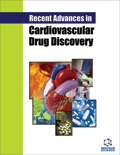Abstract
The introduction of therapies that inhibit tumor angiogenesis and particularly target to vascular endothelial growth factor (VEGF) and vascular endothelial growth factor receptor (VEGFR) (VEGF inhibitors/VEGFi) have revolutionized the treatment of various cancer types. Although their clinical benefit can be optimal for cancer-affected patients, the safety of these targeted agents is of special concern especially for longer-term adjuvant or maintenance treatment. Importantly, VEGFi therapy has been significantly associated with hypertension (HTN) as an adverse effect and therefore the control of blood pressure (BP) after the administration of these drugs remains a challenging matter to be faced. The aim of this review is to summarize studies which investigate the association of VEGFi agents with HTN manifestation and the possible risks associated with this complication. Additionally, given that the optimal management of HTN caused by VEGFi remains obscure, this review will focus on prevention strategies including BP monitoring plans and propose potential therapeutic approaches.
Keywords: Anti-VEGF cancer factors, arterial hypertension, axitinib, bevacizumab, cediranib, pazopanib, sorafenib, sunitinib, vandetanib.
 33
33


